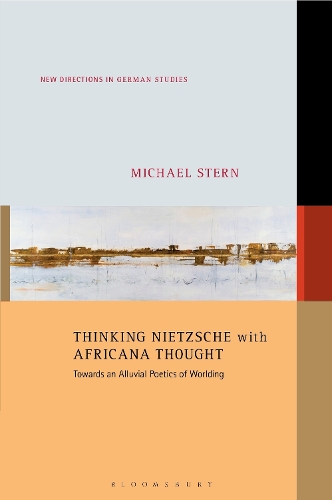
Nietzsche, the Africana Tradition, and Decolonial Worldmaking
(Hardback)
Publishing Details
Nietzsche, the Africana Tradition, and Decolonial Worldmaking
By (Author) Professor or Dr. Michael Stern
Bloomsbury Publishing USA
Bloomsbury Publishing USA
4th September 2025
United States
Classifications
Professional and Scholarly
Non Fiction
Literary studies: postcolonial literature
Decolonisation and postcolonial studies
Ethics and moral philosophy
Philosophy: aesthetics
199.6
Physical Properties
Hardback
176
Width 140mm, Height 216mm
Description
Michael Stern sets Nietzsche in conversation with Africana artists and philosophers to explore the role of aesthetics in decolonial worldmaking.
Nietzsche, a theorist of power, morality, and aesthetics supplies a description of a world making that also destroys. His notion of the will to power explains how particular and local interpretations spread and dominate. Stern situates Nietzsche's thought alongside those of Africana artists and thinkers who, confronted with the effects of the slave trade and colonial violence, speak to new theoretical paradigms addressing erasure and displacement and its relationship to form making.
Nietzsche, the Africana Tradition, and Decolonial Worldmaking opens with Nietzsche's work on the human imagination and its institutionalized restrictions, written around when the Congress of Berlin divided Africa without the presence of Africans. The book ends with the Ghanian sculptor El Anatsuis understanding of temporality, form, and naming as he creates a slave memorial in a Danish setting.
Eschewing notions of hierarchal authority and keeping in mind how epistemological racism has delimited our philosophical possibilities, Michael Stern employs thought from each lineage to open the space for what Frantz Fanon calls a human with a new sense for rhythm. What emerges is a different sense for history, morality, culture, and political life.
Author Bio
Michael Stern is Associate Professor in the Department of German and Scandinavian at the University of Oregon, USA, and is affiliated with Philosophy, Comparative Literature, and the Humanities Program. He is the author of Nietzsches Ocean, Strindbergs Open Sea and Alluvia: The Palimpsest of African Memory, which appeared Philosophy as World Literature (Bloomsbury, 2020).
